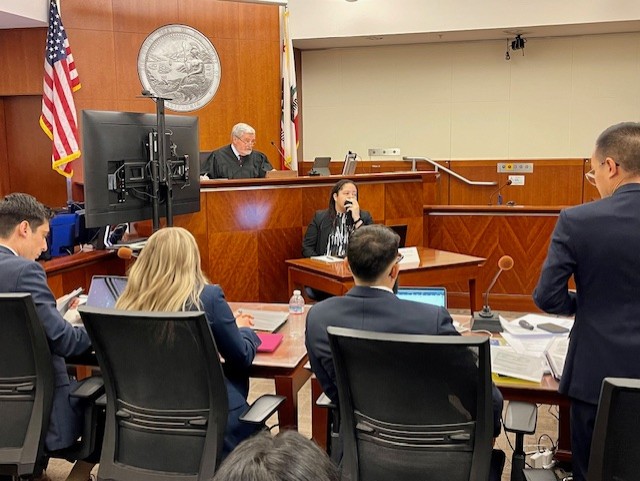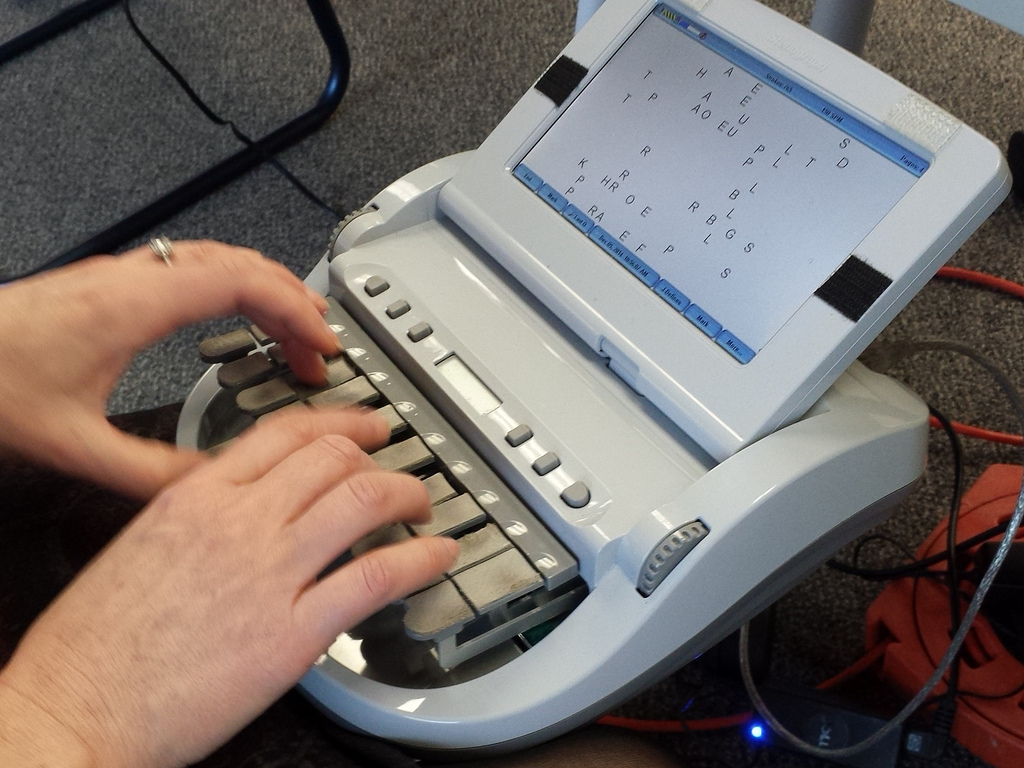Court reporting Explained: Everything You Should Know
Court reporting Explained: Everything You Should Know
Blog Article

The Future of Court Coverage: Technologies and Fads Forming the Market
As you check out the future of court coverage, you'll observe a change driven by modern technology and technology. Real-time transcription and AI applications are improving just how legal process are recorded. With remote depositions acquiring grip, the landscape is progressing swiftly. It elevates inquiries about the role of court press reporters and the abilities they'll require progressing. What does this mean for experts in the field? The answer might surprise you.
The Effect of Artificial Knowledge on Court Coverage
As man-made intelligence continues to progress, it's reshaping the landscape of court coverage in methods you might not anticipate. AI can analyze substantial amounts of legal text, assisting you identify appropriate criteria and streamline instance prep work.
Moreover, AI can enhance the prep work procedure by offering predictive analytics, which can assist you prepare for trial results based on historic data. With AI dealing with regular jobs, you can concentrate more on your core obligations, such as making certain precision and providing vital lawful insights.
Real-Time Transcription: Enhancing Accuracy and Effectiveness
Real-time transcription has actually changed the court reporting procedure, making it less complicated than ever before for you to record exact records instantly. With sophisticated technology, you can currently provide immediate transcripts throughout hearings or depositions, making sure that all parties have accessibility to crucial info without hold-up. This immediacy not just boosts the overall effectiveness of the legal procedure however likewise permits you to concentrate on the discussion, rather than clambering to catch up.
As you utilize real-time transcription, you'll discover a considerable decrease in errors, many thanks to automated proofreading tools that flag disparities as you kind. In addition, customers value the capability to evaluate records instantly, making it possible for quicker decision-making and smoother procedures. By welcoming this development, you're not just improving your workflow; you're setting a brand-new requirement in court coverage that focuses on accuracy and effectiveness. This forward-thinking technique placements you at the center of the progressing legal landscape (court reporting).
The Rise of Remote Depositions

With the growing need for flexibility in legal procedures, remote depositions have actually become a game-changer in court reporting. You can now participate in depositions from anywhere, removing traveling time and costs. This ease permits you to concentrate on what absolutely matters-- preparing your instance.
Remote depositions use advanced modern technology, making it possible for real-time communication and document sharing. You can involve with witnesses and lawyers flawlessly, making particular that everyone stays linked despite their physical place. This approach not only saves time but likewise increases your swimming pool of expert witnesses, as geographical barriers end up being much less of an issue.
As remote depositions gain popularity, it's essential to adapt to this brand-new norm. Acquaint yourself with the required devices and protocols to ensure a smooth experience - court reporting. Embracing this technology can give you an one-upmanship, allowing you to browse the ever-evolving landscape of legal process effectively
Digital Courtrooms: Changing the Lawful Landscape
As you enter the world of digital courts, you'll notice just how online hearing innovation is reshaping lawful procedures. This shift not only makes gain access to easier but additionally improves transcription accuracy, making sure every word is captured correctly. Embracing these developments can considerably improve the effectiveness of the legal process.
Online Hearing Technology
While the traditional courtroom setting has long been a symbol of justice, the rise of digital hearing innovation is reshaping how legal procedures are performed. You'll discover that these electronic systems use unmatched availability, permitting participants to join from anywhere. This adaptability not just conserves time yet also reduces costs related to travel and logistics. Envision being able to provide your instance without tipping foot in a physical court room. Furthermore, digital hearings can boost participation, enabling witnesses and specialists to provide statement without the constraints of place. As you adjust to these modifications, you'll observe that online hearings preserve the honesty of the legal procedure while embracing innovation, ultimately transforming the method justice is served in the contemporary world.
Enhanced Transcription Precision
Improved transcription precision is changing the lawful field, making court proceedings extra reputable than ever before. With improvements in speech recognition innovation and AI-driven devices, you can expect to see a considerable reduction in transcription errors. These technologies not only catch every word spoken but also represent subtleties in tone and context, boosting total comprehension. Because of this, important details aren't lost in translation, making certain that the stability of the legal check procedure is maintained. Additionally, real-time transcription permits you to access precise records promptly, helping with smoother interaction throughout tests. Embracing these innovations means you're entering a future where clarity and precision in lawful documents are critical, eventually benefiting all celebrations entailed in the judicial system.
The Duty of Court Reporters in Virtual Hearings
Court press reporters play an essential role in digital hearings, assuring that every word talked is precisely caught and transcribed in real-time. As a court reporter, you facilitate interaction in between celebrations, making complex lawful process obtainable. Your expertise in lawful terms and the capability to rapidly adjust to numerous speakers are important in this digital environment.
During digital hearings, you keep an undeviating emphasis, even among technological difficulties or disturbances. You offer a clear, written record that can be referenced later on, assisting judges, lawyers, and clients recognize the procedures. Your skills in steering various platforms guarantee that you can seamlessly incorporate into any digital arrangement.
Additionally, you likewise aid maintain the honesty of the judicial procedure, verifying that every participant's voice is listened to. By doing this, you not just enhance the effectiveness of legal proceedings yet likewise contribute to the total justness and openness of the justice system.
Technologies in Documents and Record Maintaining
As technology evolves, advancements in documentation and document maintaining are changing exactly how stenotype reporter capture and handle lawful records. You'll find that digital devices permit quicker and more precise transcription, lowering the chances of human error. Cloud-based storage options allow you to firmly store and gain access to records from anywhere, making partnership with lawful groups smooth.
Synthetic knowledge is additionally playing a substantial role, helping with real-time transcription and even using clever editing attributes. These advancements not only improve efficiency yet likewise ensure that you can offer high-grade documents in a busy lawful setting.
Moreover, the integration of voice recognition software application enhances the procedure, permitting you to concentrate extra on the subtleties of the procedures rather than simply inputting. By accepting these advancements, you're placed to raise your abilities and satisfy the needs of modern court reporting effectively.
Future Abilities and Training for Court Reporters
While innovation improves the landscape of legal process, it's crucial for stenotype reporter to adjust by obtaining brand-new abilities and training. You'll require to familiarize on your own with advanced transcription software program and electronic coverage devices to remain affordable. Embracing expert system and real-time captioning will boost your effectiveness and accuracy.
In addition, developing solid research study and logical skills is crucial. You'll commonly experience intricate lawful jargon and procedures, so understanding lawful principles will sharpen your coverage. On-line programs and workshops can offer useful Going Here understandings into these areas.
Connecting with various other experts will likewise assist you stay updated on sector fads. Signing up with companies or attending conferences can reveal you to new technologies and finest techniques.
Ultimately, refining your social skills will certainly enhance interaction with attorneys and customers. By concentrating on these areas, you'll position on your own for success in the advancing field of court reporting.
Often Asked Questions

What Credentials Are Needed to Become a Court Reporter Today?
To end up being a court press reporter today, you'll need a high school diploma, specialized training in court reporting, and accreditation, typically through a national test. Solid keying abilities and interest to detail are vital for success.
Just How Can Court Reporters Remain Updated With New Technologies?
To stay updated with brand-new technologies, you should participate in workshops, sign up with specialist companies, and register for relevant publications. Networking with peers and joining on the internet forums can additionally keep you notified regarding the most recent improvements.
What Is the Typical Salary for Court Reporters Currently?
The ordinary salary for stenotype reporter varies by location and experience, yet you can anticipate around $50,000 to $70,000 yearly. In some areas, experienced press reporters can make even extra, particularly with specialized abilities.
Exist Job Opportunities for Court Reporters in Non-Legal Fields?
Yes, there are work official source possibilities for stenotype reporter in non-legal areas. You can find roles in closed captioning, transcription services, and media, where your abilities in capturing spoken language are very valued and searched for.
How Does Court Coverage Differ in Various Countries?
Court reporting varies significantly across nations. You'll locate differences in terminology, innovation, and legal systems. For example, some countries highlight digital coverage, while others still depend on standard stenography approaches for catching talked words.
Report this page